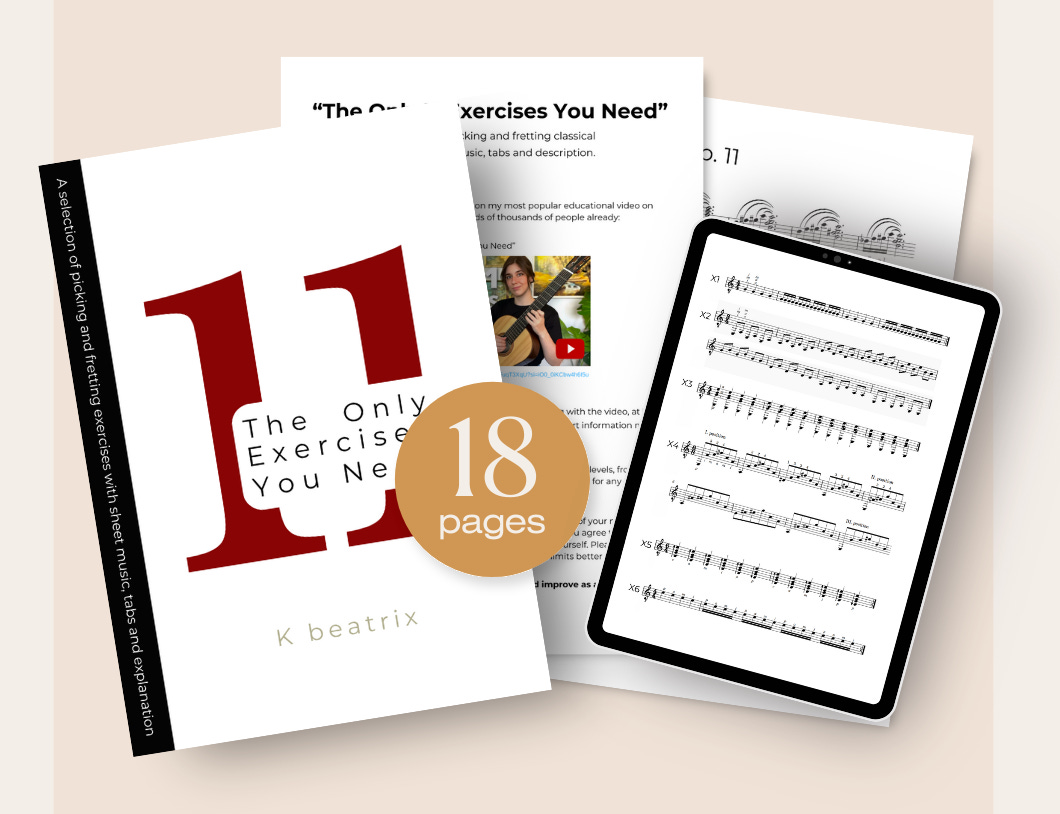Hey Friends,
Little fun fact about me: I was a maths major in high school for two years. Would you believe it? Actually, music and math have a lot to do with each other, but I've come to realize that some things are very hard to measure (which is why we don't like to measure them, tbh). Like musical skills, for example. Especially when you are self-taught. But it doesn’t mean that we can’t, and this is what I want to talk about today.
I think it's very important to know your own abilities and to be able to put them on a realistic scale as much as possible. Without it, you will have no idea what level your abilities are at, and I see many guitarists jumping into pieces and songs that are way over their level, and they only realize it after weeks or months of practice. Not fun, right?
if you play pieces that are too easy for your skill level, you're not going to progress
and if you play too hard, it can take away your motivation
When I teach my students, I always try to offer them methods and structures that they can follow on their own too later on, even without me. I think the worst teachers are those who just tell you to do this or that…
I've been trying to think of a way to determine the level of a piece, so here's an idea that's helped me a lot, maybe it will help you too. To choose the right piece and/or exercise to learn, you need to consider two things: your own level and the difficulty level of the piece. Duh, Betti… Okay okay, but the thing is, it's not so simple in reality, because music is not an objective thing. So how exactly do we do this.
Before you start learning a new piece, make a list of all the technical elements of the piece and try to rate them by it’s difficulty. You can use a scale of 0 to 10, or you can use normal music school grading system. You see some big juicy bar chords. Have you ever done that? If so, cool. If not, try to gauge how difficult it might be compared to where you are now. It's okay if you find something that's beyond your level, because that means you can improve with it. The difference is how much it is above your level.
For example, if the bar chord lasts for only a few seconds, it might be a good level up for you. If, on the other hand, you need to hold it for 2 lines while doing hammer-ons, pull-offs and other crazy stuff, it might not be the best idea to jump into it, and instead you might want to look at a piece or exercise that could be a good step between where you are now and the difficult bar chord you want to get to.
Btw I have a video about this, which was made a thousand years ago, but I think it's still relevant, check it out:
Guitar Lessons
You won't always be able to judge the level of a piece well on your own, and it’s totally okay. It's worth consulting a teacher who can accurately assess these. Believe me, even just one lesson can be worthwhile to get you ahead in your learning. Woud you like me to help you? Then book your lesson here. 👇
My Favorite 11 Exercises
Speaking of exercises, my booklet with 11 great exercises is available in my revamped shop, check it out and support my work with a purchase. You win, I win. It’s good, isn’t it? I've been working a lot lately to develop a new and more user-friendly webshop, so if you have any feedback or suggestion, feel free to send them to me.
Lastly, Mind of a Musician is a free newsletter, but if you enjoy it, please consider to support me with a paid subscription!
Have a great week! Cheers,
Beatrix







You have convinced me to try some easier pieces. Ran into you on your six classical guitar pieces, YouTube vid